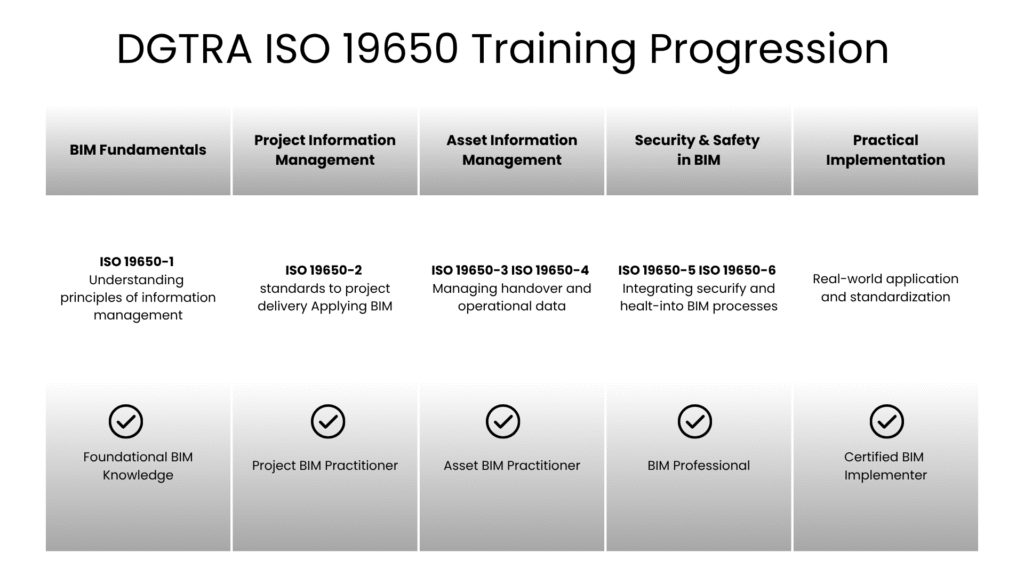DGTRA is proud to announce that our team has successfully completed ISO 19650 Standards Training, conducted by the British Standards Institute (BSI). The training was delivered by Mr. Stuart Byford, BIM Global Technical Lead at BSI, and focused on strengthening our expertise in implementing international standards for information management in the built environment.
Addressing the Challenges in India’s AECO Industry
The Architecture, Engineering, Construction, and Operations (AECO) industry in India is experiencing rapid growth, but it continues to face significant challenges—fragmented project delivery, inconsistent documentation practices, data silos, and inefficiencies in collaboration between stakeholders. These issues often lead to cost overruns, delays, and compromised quality.

Why Standardization Matters
The ISO 19650 framework provides a structured and internationally recognized way of managing information across the entire project lifecycle. A standardized approach ensures consistency, clarity, and accountability, making collaboration across disciplines seamless. By adopting these processes, organizations can reduce risks, improve efficiency, and deliver projects that are not only on time but also future-ready.
DGTRA’s Commitment to Digital Excellence
At DGTRA, we believe that digital transformation is the future of the built environment. By investing in advanced training such as ISO 19650, we continue to strengthen our ability to lead with global best practices. Our team is committed to advancing digital excellence and enabling smarter, more efficient project delivery for our clients.
Guiding Organizations on Their Digital Journey
Whether an organization is already on the path to digital transformation or planning to embark on this journey, DGTRA is the right partner to help navigate this transition. With our expertise in ISO 19650 implementation, BIM maturity assessments, and digital process standardization, we are well positioned to guide clients toward achieving greater efficiency, compliance, and global competitiveness.
Yes. DGTRA supports end-to-end ISO 19650 implementation—from defining information requirements to setting up Common Data Environments.
Absolutely. We provide practical ISO 19650 and BIM training to improve collaboration, data consistency, and delivery quality.
It standardizes data sharing and documentation, reducing confusion and rework. DGTRA helps teams integrate these practices seamlessly.
We assess BIM workflows and guide firms toward automation, standardization, and compliance with global best practices.
DGTRA ensures efficient data flow, risk reduction, and better coordination across all project stages.














